
Tortola: The Jewel of the British Virgin Islands
Tortola, the largest of the British Virgin Islands, is a paradise for travelers seeking pristine beaches, lush landscapes, and a rich maritime history. The island's capital, Road Town, is a bustling hub where you can find vibrant markets, local eateries, and a charming mix of colonial architecture. As you explore, you'll discover the warm hospitality of the locals and the relaxed, island vibe that defines Tortola. For nature enthusiasts, Tortola offers a variety of outdoor activities. Sage Mountain National Park boasts the highest peak in the Virgin Islands, offering hiking trails through verdant rainforests with stunning panoramic views. Smuggler’s Cove and Cane Garden Bay are perfect for sunbathing, swimming, and snorkeling in crystal-clear waters. History buffs will find plenty to explore as well. The 1780 Lower Estate Sugar Works Museum provides a glimpse into the island's colonial past and its sugar plantation history. Meanwhile, the Callwood Rum Distillery, one of the Caribbean's oldest, still produces rum using traditional methods. A visit to Tortola is not complete without a sailing trip; the island is renowned for its world-class sailing and is a gateway to the surrounding islets and cays, making it a haven for yachting enthusiasts.
Local tips in Tortola
- Visit during the off-peak season (May to November) for fewer crowds and better hotel rates.
- Rent a car to explore the island's hidden gems and scenic spots at your own pace.
- Bring cash, as some local shops and restaurants do not accept credit cards.
- Try the local cuisine, especially fresh seafood and traditional dishes like fish and fungi.
- Book sailing and snorkeling tours in advance, as they can fill up quickly, especially during peak season.
Tortola: The Jewel of the British Virgin Islands
Tortola, the largest of the British Virgin Islands, is a paradise for travelers seeking pristine beaches, lush landscapes, and a rich maritime history. The island's capital, Road Town, is a bustling hub where you can find vibrant markets, local eateries, and a charming mix of colonial architecture. As you explore, you'll discover the warm hospitality of the locals and the relaxed, island vibe that defines Tortola. For nature enthusiasts, Tortola offers a variety of outdoor activities. Sage Mountain National Park boasts the highest peak in the Virgin Islands, offering hiking trails through verdant rainforests with stunning panoramic views. Smuggler’s Cove and Cane Garden Bay are perfect for sunbathing, swimming, and snorkeling in crystal-clear waters. History buffs will find plenty to explore as well. The 1780 Lower Estate Sugar Works Museum provides a glimpse into the island's colonial past and its sugar plantation history. Meanwhile, the Callwood Rum Distillery, one of the Caribbean's oldest, still produces rum using traditional methods. A visit to Tortola is not complete without a sailing trip; the island is renowned for its world-class sailing and is a gateway to the surrounding islets and cays, making it a haven for yachting enthusiasts.
When is the best time to go to Tortola?
Iconic landmarks you can’t miss
Cyril B. Romney Tortola Pier Park
Experience the beauty and culture at Cyril B. Romney Tortola Pier Park, a vibrant hub for shopping, dining, and relaxation in the British Virgin Islands.
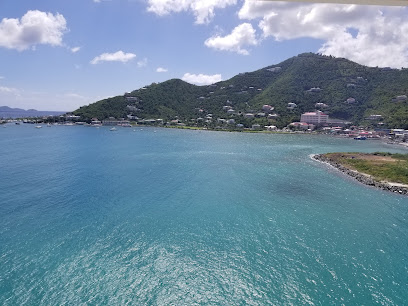
Tortola Cruise Ship Pier
Experience the vibrant heart of Tortola! Cruise, shop, dine, and explore the gateway to the British Virgin Islands from the Road Town Cruise Ship Pier.
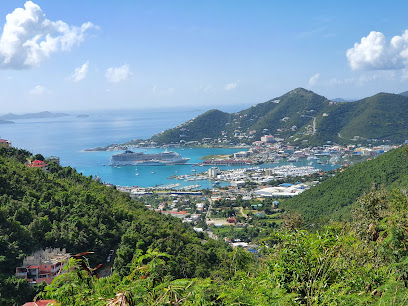
Nanny Cay Resort & Marina
Discover the charm of Nanny Cay Resort & Marina in Tortola, where relaxation meets adventure in the breathtaking British Virgin Islands.
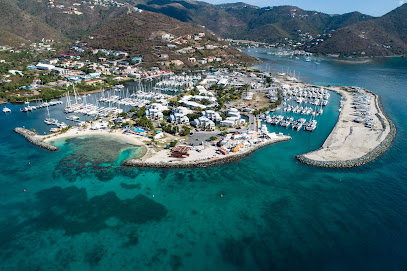
The Moorings: BVI (Tortola)
Discover the beauty of the British Virgin Islands from The Moorings in Tortola, your gateway to adventure on the Caribbean waters.
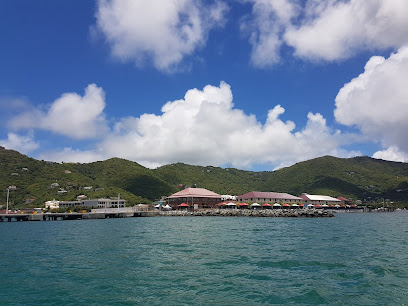
Smuggler's Cove
Explore the tranquil beauty of Smuggler's Cove in the British Virgin Islands, a perfect blend of relaxation and adventure for every traveler.
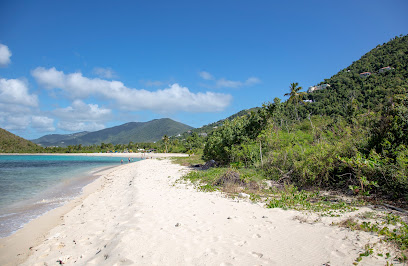
Stoutt's Lookout Bar
Experience the vibrant flavors and stunning views at Stoutt's Lookout Bar in the British Virgin Islands - a perfect stop for relaxation and local culture.
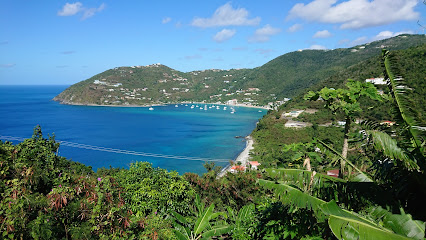
The Watering Hole
Experience the vibrant flavors of the British Virgin Islands at The Watering Hole, a grill and bar that promises delightful meals and stunning views.
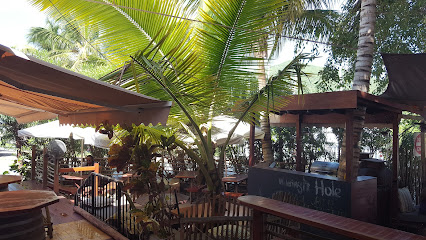
Cane Garden Bay
Discover the enchanting beauty of Cane Garden Bay in the British Virgin Islands, where turquoise waters meet golden sands and vibrant culture awaits.
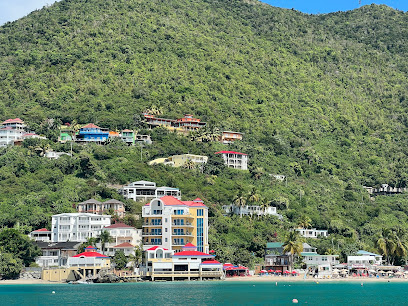
J.R. O'Neal Botanical Gardens
Discover a serene escape in Road Town's lush botanical garden, showcasing the diverse flora of the British Virgin Islands.
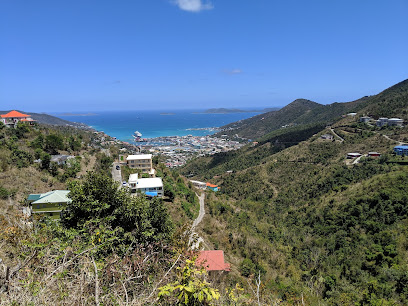
D'CoalPot BVI Restaurant Bar & Grill
Experience authentic Caribbean cuisine with stunning ocean views at D'CoalPot BVI Restaurant Bar & Grill in Tortola's charming Carrot Bay.
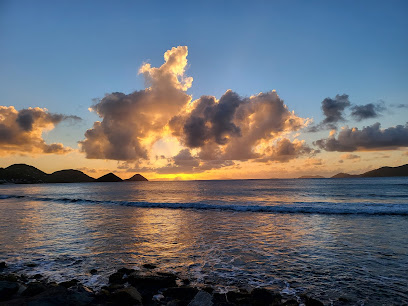
Quitos Gazebo & Luxury Inn
Experience the ultimate Caribbean getaway at Quitos Gazebo & Luxury Inn, where luxury and natural beauty come together in Cane Garden Bay.
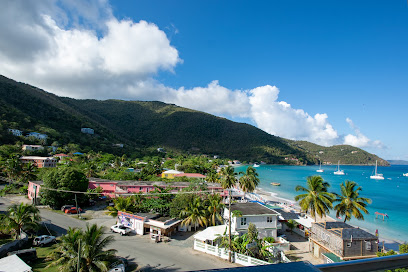
Callwood Rum Distillery
Explore the rich heritage of rum-making at Callwood Rum Distillery in Cane Garden Bay, an essential stop for every traveler in the British Virgin Islands.
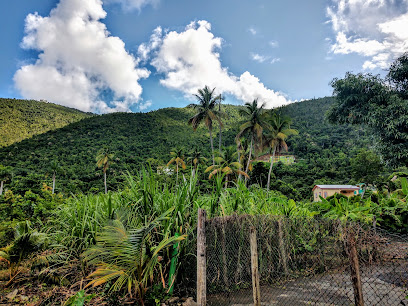
Bubbly Pool
Explore the enchanting Bubbly Pool in Belle Vue, British Virgin Islands, where nature's beauty and adventure await amidst bubbling waters and scenic landscapes.
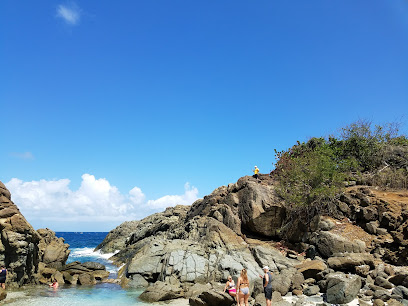
Aromas Cigar & Martini Bar, BVI
Discover the ultimate relaxation at Aromas Cigar & Martini Bar, where exquisite cocktails and premium cigars meet a vibrant Caribbean atmosphere.
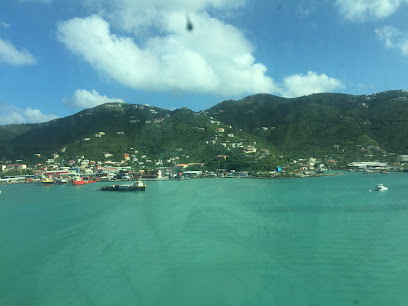
Sage Mountain National Park
Explore the breathtaking vistas and rich biodiversity of Sage Mountain National Park, the highest point in the British Virgin Islands.
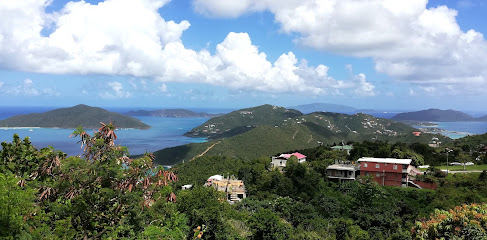
Unmissable attractions to see
Magens Bay Beach
Discover Magens Bay Beach in St. Thomas: a mile of white sand, calm turquoise waters, and a rich history await in this Caribbean paradise.
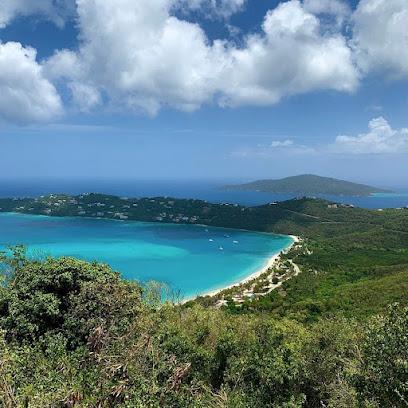
Coral World Ocean Park
Discover the wonders of Caribbean marine life at Coral World Ocean Park, St. Thomas' premier underwater adventure!
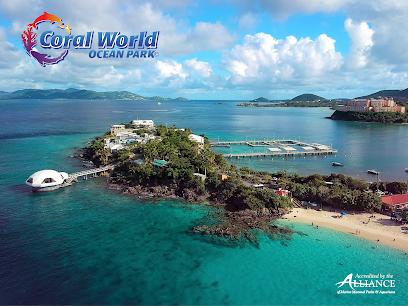
Mountain Top
Discover breathtaking panoramic views, duty-free shopping, and the world-famous Banana Daiquiri at St. Thomas's iconic Mountain Top.
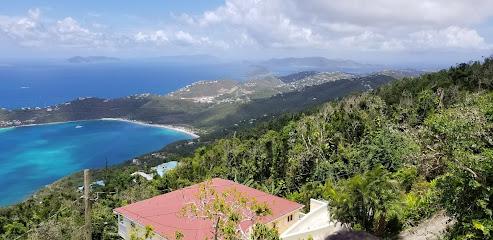
Virgin Islands National Park
Discover St. John's natural beauty and rich history in this protected paradise, offering pristine beaches, lush trails, and vibrant coral reefs.
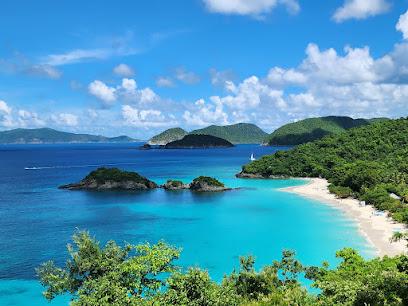
Parasail Virgin Islands
Soar above the Caribbean Sea with Parasail Virgin Islands at Sapphire Beach Marina for breathtaking views and an unforgettable adventure!
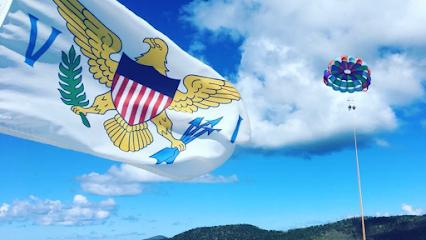
Coki Point Beach
Experience the vibrant atmosphere and incredible snorkeling at Coki Point Beach, St. Thomas – a Caribbean paradise!
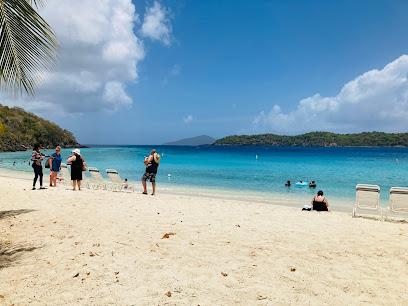
Charlotte Amalie Overlook
Capture postcard-perfect views of Charlotte Amalie from this easily accessible scenic overlook, blending history and natural beauty. A must-see St. Thomas vista!
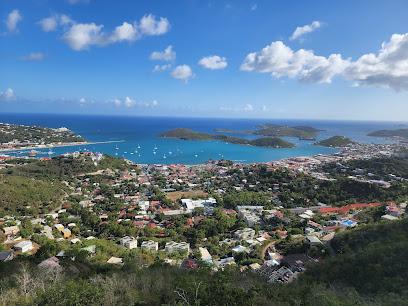
Soggy Dollar Bar
Experience the laid-back charm of Soggy Dollar Bar in Jost Van Dyke, where delicious cocktails and stunning beach views create unforgettable memories.
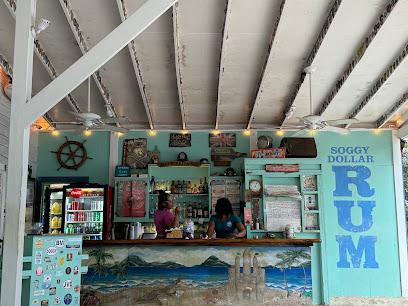
The Baths
Explore the breathtaking Baths of Virgin Gorda: a natural wonderland of granite boulders, hidden grottos, and pristine Caribbean waters.
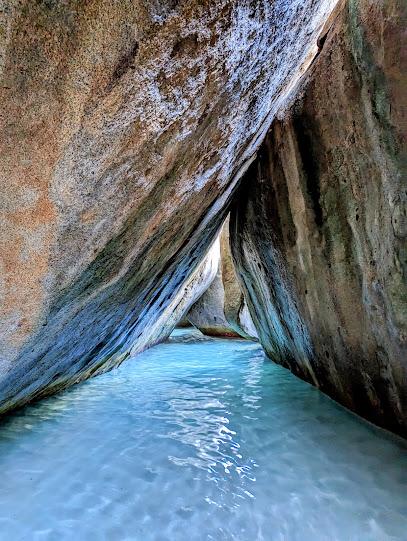
Drake's Seat
Experience St. Thomas's legendary scenic lookout: panoramic views, rich history, and breathtaking beauty await at Drake's Seat.
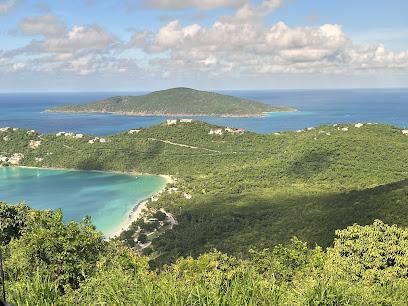
Bolongo Bay Beach Resort
Experience St. Thomas at Bolongo Bay Beach Resort: An intimate, all-inclusive beachfront getaway with thrilling water sports and personalized service.
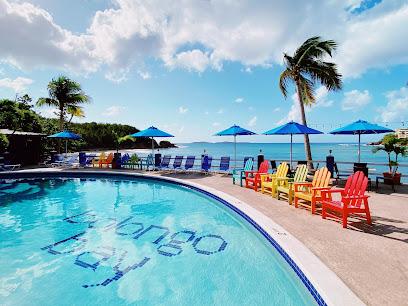
Lady Lynsey Catamaran
Luxury catamaran tours in St. Thomas: snorkeling, sunset sails, and gourmet dining experiences await on the beautiful Caribbean Sea.

American Yacht Harbor
Experience nautical charm at this premier St. Thomas marina, offering stunning views, island cuisine, and thrilling water adventures.
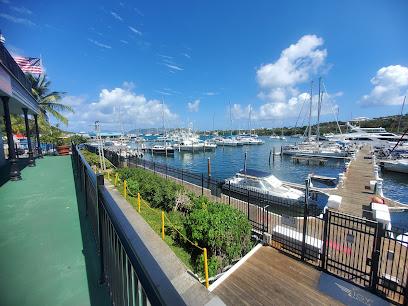
Lindquist Beach
Escape to Lindquist Beach in St. Thomas: Pristine sands, tranquil waters, and breathtaking views await in this Caribbean paradise.
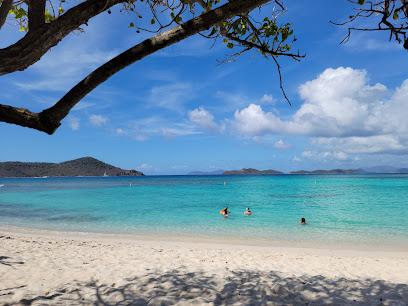
Annaberg Sugar Plantation
Experience the captivating history of sugar production at Annaberg Sugar Plantation, a historical landmark in St. John with stunning views and rich heritage.
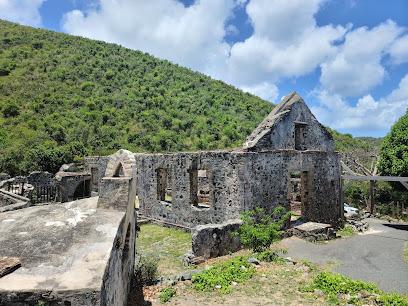
Essential places to dine
Pusser's
Experience Caribbean cuisine and vibrant nightlife at Pusser's in Road Town, British Virgin Islands - A true island gem!
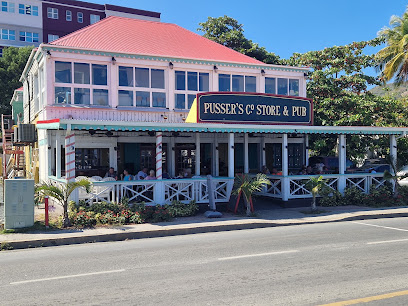
Maria's By The Sea Hotel & Restaurant
Experience unparalleled hospitality at Maria's By The Sea Hotel & Restaurant—where Caribbean charm meets culinary delight.

The Watering Hole
Experience delicious grilled cuisine with stunning waterfront views at The Watering Hole in Road Town, Tortola - a must-visit culinary gem.
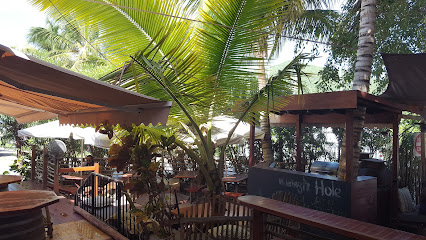
Peg Legs Restaurant
Discover authentic Caribbean cuisine at Peg Legs Restaurant in Nanny Cay - where fresh seafood meets stunning marina views.
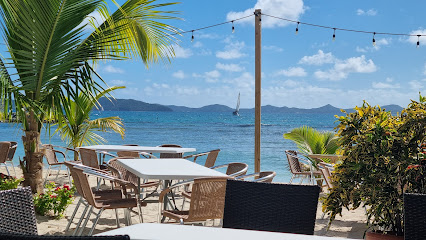
Capriccio di Mare
Experience authentic Italian cuisine with breathtaking waterfront views at Capriccio di Mare in Road Town, British Virgin Islands.
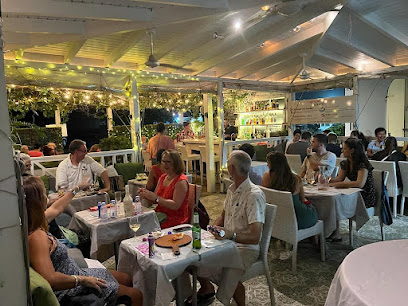
Myett's Restaurant & Hotel
Discover culinary excellence at Myett's Restaurant & Hotel in Cane Garden Bay - where stunning views meet delicious Caribbean flavors.
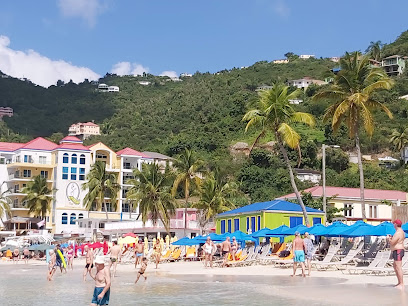
Captain Mulligans
Experience authentic Caribbean flavors at Captain Mulligans - where every meal is paired with stunning ocean views.
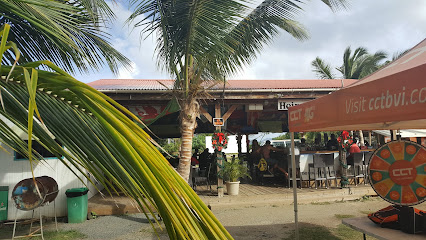
D'CoalPot BVI Restaurant Bar & Grill
Experience authentic Caribbean flavors at D'CoalPot BVI Restaurant Bar & Grill in Tortola's picturesque Carrot Bay.
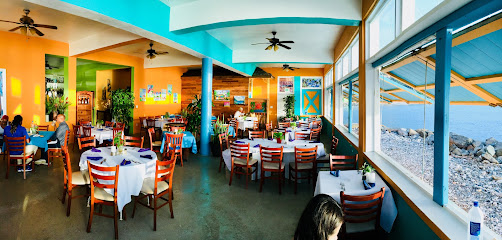
Omar's Fusion
Discover Omar's Fusion: A Culinary Haven in Soper's Hole Offering Exquisite Caribbean and International Dishes Amidst Stunning Waterfront Views.
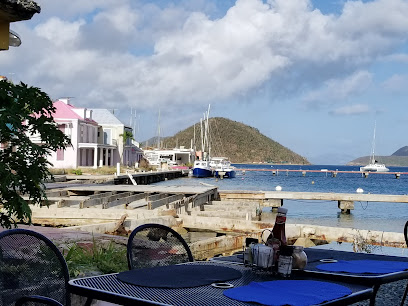
Bamboushay Restaurant & Lounge
Discover exquisite dining at Bamboushay Restaurant & Lounge with breathtaking waterfront views in Road Town, British Virgin Islands.
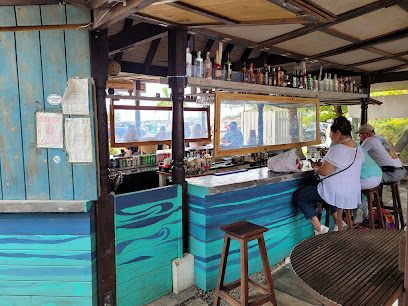
Red Rock
Discover Red Rock: A vibrant restaurant and bar offering authentic Caribbean cuisine and refreshing cocktails in the heart of the British Virgin Islands.
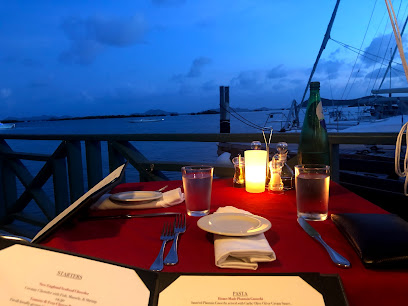
Naturally Tasty by RotiMan
Discover a culinary gem in Road Town where Caribbean flavors come alive at Naturally Tasty by RotiMan.
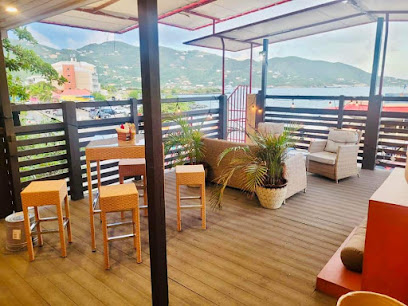
Nicoles Beach Bar
Discover Nicoles Beach Bar: A Tropical Oasis Offering Delicious Food and Stunning Ocean Views in the Heart of the British Virgin Islands.
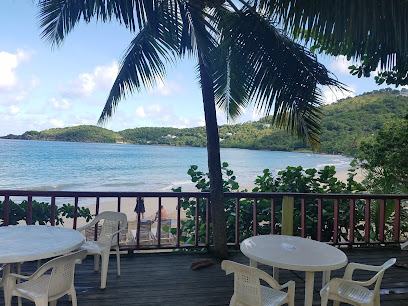
Gene's Bar & Grill
Discover the best local flavors at Gene's Bar & Grill in Road Town - a family-run gem offering delicious Caribbean cuisine and friendly service.
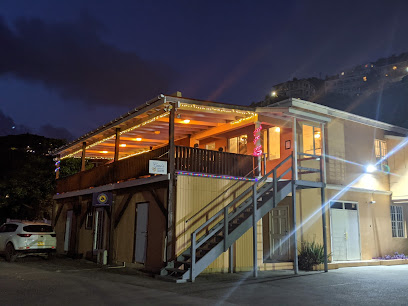
The Dove Restaurant
Discover authentic Caribbean flavors at The Dove Restaurant in Tortola - a culinary delight amidst breathtaking island views.
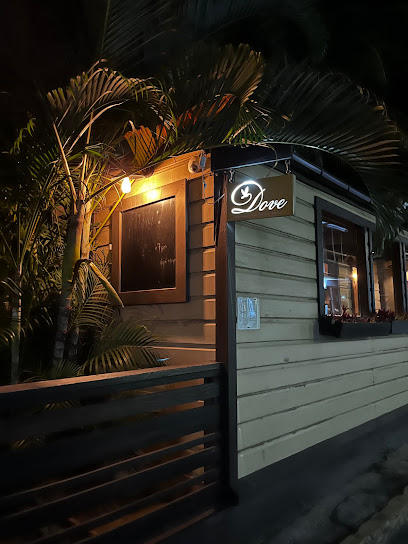
Markets, malls and hidden boutiques
Tortola Pier Park
Explore Tortola Pier Park: A lively shopping center brimming with local culture, unique shops, and delightful dining experiences in the British Virgin Islands.
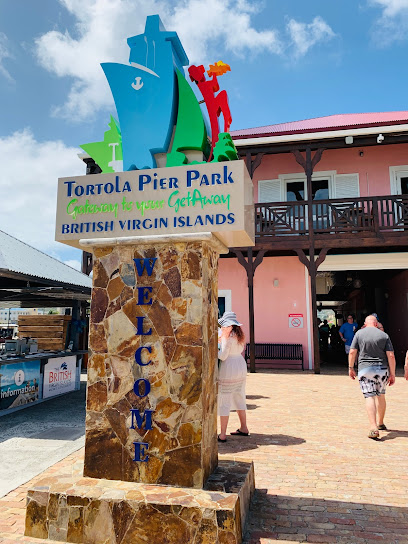
Crafts Alive Village
Discover the vibrant Crafts Alive Village, your ultimate shopping destination for unique souvenirs and local artistry in the heart of the British Virgin Islands.
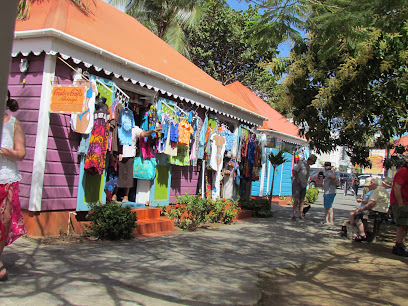
Mill Mall
Explore Mill Mall in Road Town for a delightful shopping experience filled with local crafts, dining, and vibrant culture in the British Virgin Islands.
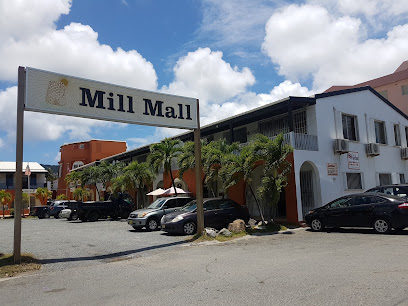
Varieties & Electronics
Explore Varieties & Electronics in Road Town for unique clothing and essential appliances while enjoying the vibrant culture of the British Virgin Islands.
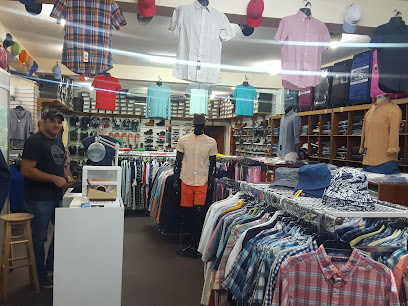
GOODFELLAS
Explore Goodfellas in Road Town for fashionable clothing and exceptional service, perfect for tourists looking to embrace island style.
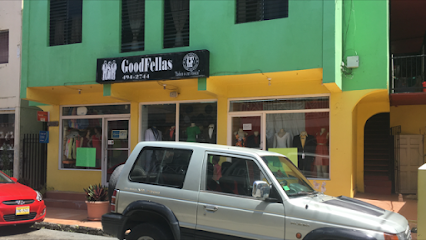
Grace To You International Soaps and More
Experience the beauty of the British Virgin Islands with artisanal organic soaps at Grace To You International Soaps and More.

Nutmeg and Co
Discover unique gifts at Nutmeg and Co in Road Town, the perfect spot for souvenirs that embody the spirit of the British Virgin Islands.
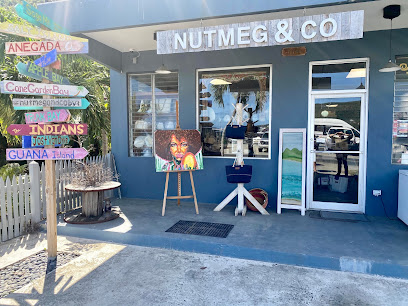
Little Switzerland
Explore Little Switzerland for exquisite jewelry and watches in the heart of Road Town, British Virgin Islands, and take home a piece of paradise.
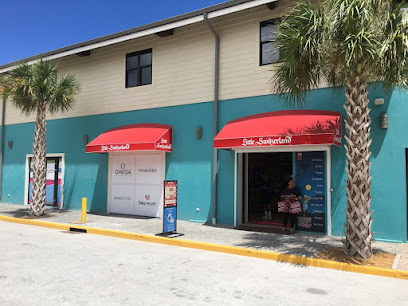
Bolo's Department Store
Discover a diverse shopping experience at Bolo's Department Store in Road Town, British Virgin Islands, where local charm meets global brands.
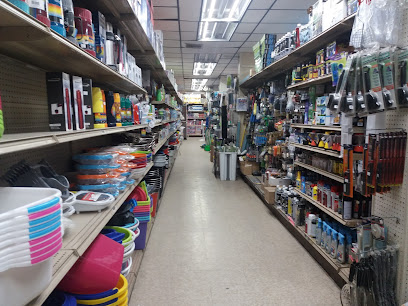
Diamonds International
Discover exquisite jewelry and watches at Diamonds International in Tortola, the perfect destination for travelers seeking luxury and elegance.
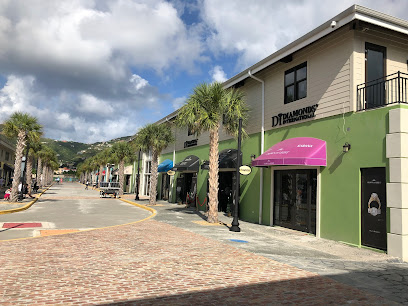
Thee Sport Shop
Explore the British Virgin Islands in style with top-notch sportswear from Thee Sport Shop in Road Town.
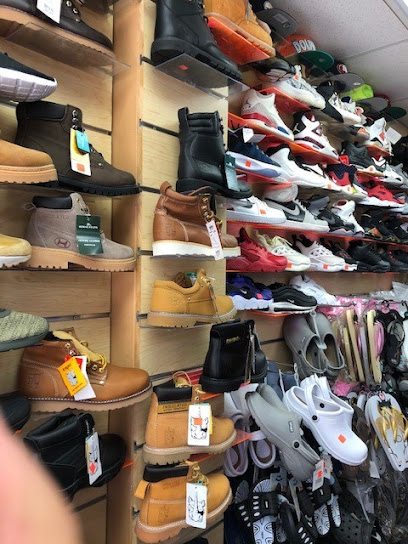
Just Kidding Children's Boutique
Shop at Just Kidding Children's Boutique for stylish children's clothing and unique toys in Road Town, British Virgin Islands.
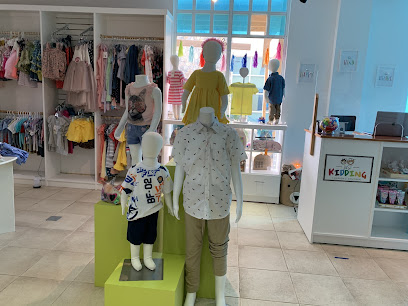
Serendipity Books & Toys
Explore the captivating world of literature and toys at Serendipity Books & Toys in Road Town, British Virgin Islands, where every visit is an adventure.
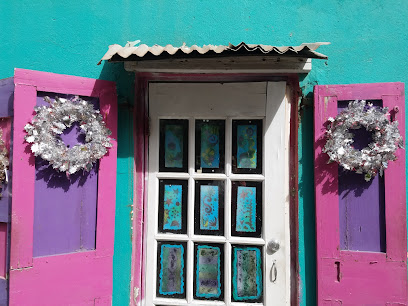
Arawak
Explore Arawak in Road Town for an exquisite selection of homewares and unique souvenirs reflecting the charm of the British Virgin Islands.

Said Department Store
Shop at Said Department Store in Road Town for a delightful blend of local crafts and international brands amidst a friendly atmosphere.
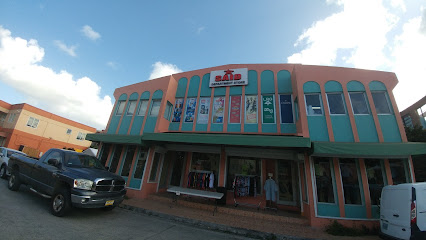
Essential bars & hidden hideouts
Pusser's
Experience the vibrant flavors and laid-back atmosphere of the Caribbean at Pusser's, a top restaurant and pub in the British Virgin Islands.
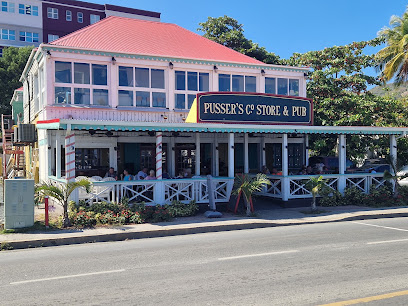
Stoutt's Lookout Bar
Experience the vibrant spirit of Tortola at Stoutt's Lookout Bar, where stunning views and authentic Caribbean flavors meet.
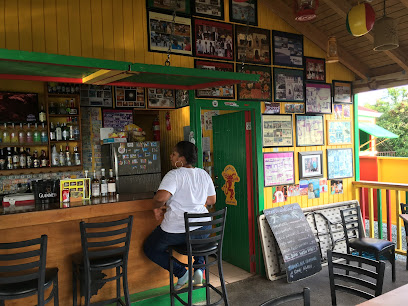
The Watering Hole
Discover the vibrant flavors and warm hospitality of The Watering Hole, a must-visit grill in the heart of Road Town, British Virgin Islands.
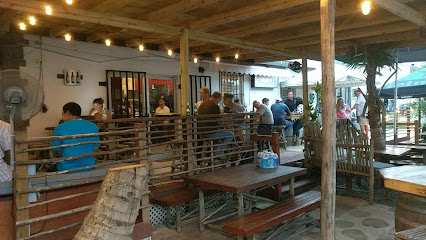
D'CoalPot BVI Restaurant Bar & Grill
Experience authentic Caribbean flavors at D'CoalPot BVI Restaurant Bar & Grill, a culinary haven in the British Virgin Islands.
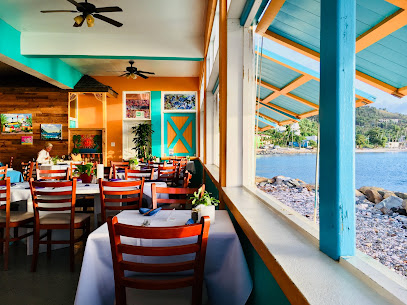
Paradise Club Lounge, Bar, & Restaurant
Discover the vibrant nightlife and delicious cuisine at Paradise Club Lounge, Bar, & Restaurant in the beautiful Cane Garden Bay.
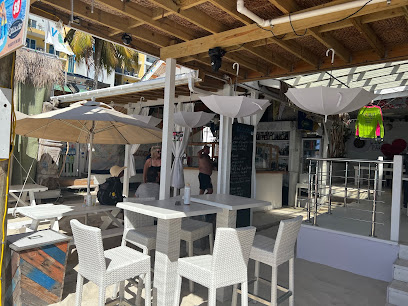
Nicoles Beach Bar
Discover the vibrant atmosphere and delectable local cuisine at Nicoles Beach Bar, a paradise in the British Virgin Islands.
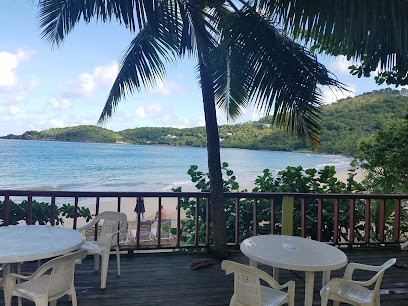
Gene's Bar & Grill
Discover the flavors of the British Virgin Islands at Gene's Bar & Grill, where every meal is a celebration of local cuisine and hospitality.
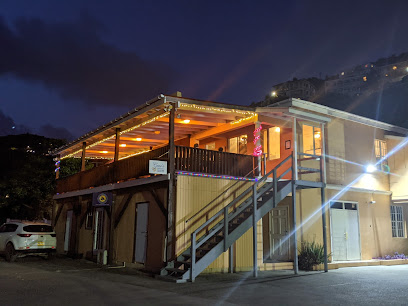
Patricias Beach Bar
Enjoy delicious grilled delights and stunning views at Patricias Beach Bar in the British Virgin Islands, a true paradise for food and relaxation.
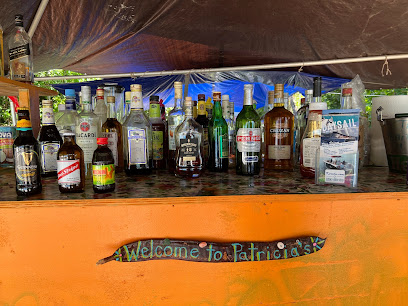
Aromas Cigar & Martini Bar, BVI
Experience luxury at Aromas Cigar & Martini Bar in the British Virgin Islands, where premium cigars and exquisite martinis await in a relaxing atmosphere.
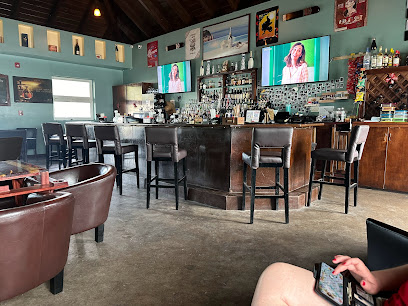
Nigel’s Boom Boom Beach Bar & Grill
Experience the vibrant flavors and stunning views at Nigel’s Boom Boom Beach Bar & Grill, the ultimate beachside retreat in the British Virgin Islands.
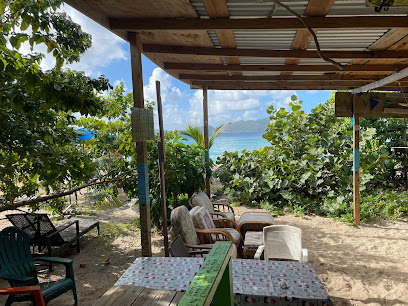
Indigo Beach House
Indigo Beach House: A Tropical Bar Experience in Cane Garden Bay with Stunning Views and Local Flavors.
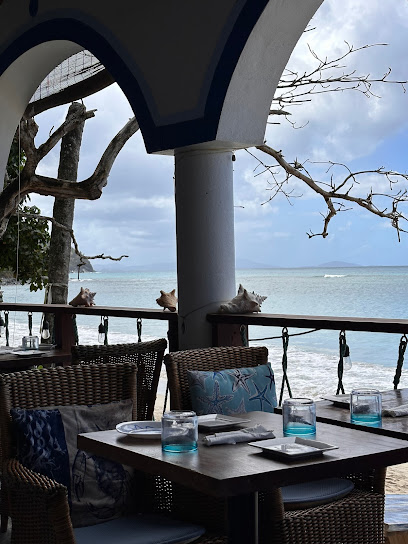
Nardie's Beach Bar
Experience the vibrant atmosphere and delicious Caribbean cuisine at Nardie's Beach Bar, your perfect tropical getaway in Tortola.
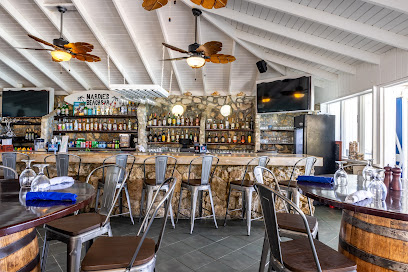
Glen Seaside Bar and Restaurant
Experience the best of Caribbean cuisine and breathtaking views at Glen Seaside Bar and Restaurant in the British Virgin Islands.
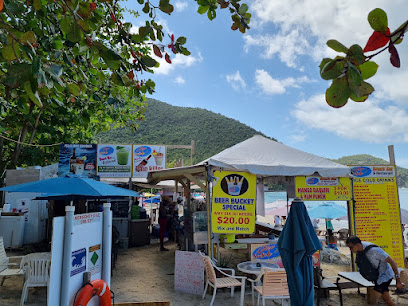
Tropix Cocktail Bar
Discover the vibrant Tropix Cocktail Bar in Road Town, where refreshing cocktails and stunning views create the perfect tropical escape.
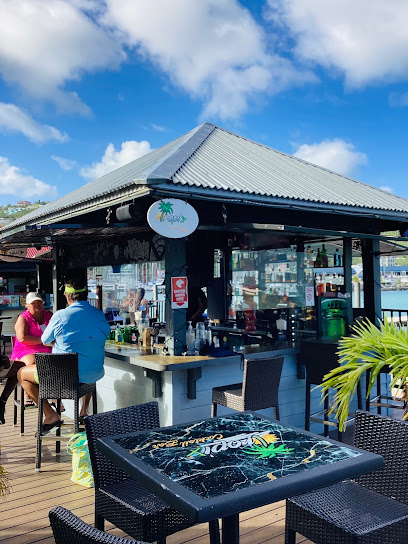
Local Phrases
-
- HelloGood day
[gud dey] - GoodbyeGoodbye
[gud-bye] - YesYes
[yes] - NoNo
[no] - Please/You're welcomePlease
[pliz] - Thank youThank you
[tenk yu] - Excuse me/SorryExcuse me
[eks-kyoos mi] - How are you?How are you?
[haw aa yu] - Fine. And you?I'm good. And you?
[aim gud. and yu] - Do you speak English?Do you speak English?
[du yu spiik ing-glish] - I don't understandI don't understand
[ai dohnt anderstand]
- HelloGood day
-
- I'd like to see the menu, pleaseI'd like to see the menu, please
[ai'd laik tu si di miinyu pliz] - I don't eat meatI don't eat meat
[ai dohnt iit miit] - Cheers!Cheers!
[chierz] - I would like to pay, pleaseI would like to pay, please
[ai wud laik tu pei pliz]
- I'd like to see the menu, pleaseI'd like to see the menu, please
-
- Help!Help!
[help] - Go away!Go away!
[go awey] - Call the Police!Call the Police!
[kaal dha puh-lees] - Call a doctor!Call a doctor!
[kaal aa dak-ta] - I'm lostI'm lost
[aim lost] - I'm illI'm ill
[aim il]
- Help!Help!
-
- I'd like to buy...I'd like to buy...
[ai'd laik tu bai] - I'm just lookingI'm just looking
[aim jost luking] - How much is it?How much is it?
[haw mach iz it] - That's too expensiveThat's too expensive
[dats tuu ik-spensiv] - Can you lower the price?Can you lower the price?
[kan yu loh-er dha prais]
- I'd like to buy...I'd like to buy...
-
- What time is it?What time is it?
[wat taim iz it] - It's one o'clockIt's one o'clock
[its wan a-klok] - Half past (10)Half past ten
[haaf past ten] - MorningMorning
[mawn-ing] - AfternoonAfternoon
[af-tuh-noon] - EveningEvening
[ee-ven-ing] - YesterdayYesterday
[yes-tuh-day] - TodayToday
[tu-day] - TomorrowTomorrow
[toh-mor-ow] - 11
[wan] - 22
[tuu] - 33
[tree] - 44
[for] - 55
[faiv] - 66
[siks] - 77
[sev-en] - 88
[eit] - 99
[nain] - 1010
[ten]
- What time is it?What time is it?
-
- Where's a/the...?Where is the...?
[wehr iz dha] - What's the address?What is the address?
[wat iz dha ad-dres] - Can you show me (on the map)?Can you show me (on the map)?
[kan yu sho mi (on dha map)] - When's the next (bus)?When is the next (bus)?
[wen iz dha nekst (bus)] - A ticket (to ....)A ticket (to ....)
[aa tik-et (tu)]
- Where's a/the...?Where is the...?
History of Tortola
-
Before European colonization, Tortola was inhabited by the Arawak and later by the Carib Indians. These indigenous peoples left behind evidence of their presence in the form of pottery, tools, and petroglyphs, showcasing their rich culture and sophisticated craftsmanship.
-
In 1493, Christopher Columbus embarked on his second voyage to the New World and stumbled upon the Virgin Islands, naming them after Saint Ursula and her 11,000 virgins. The island that would later be known as Tortola was part of this discovery, and it caught the attention of European explorers and settlers.
-
In the mid-17th century, the Dutch established a foothold on Tortola and began fortifying the island to protect against potential threats. Forts such as Fort Burt and Fort Recovery were constructed during this period. The Dutch settlers engaged in trade and agriculture, laying the groundwork for the island's economic development.
-
By the late 17th century, the British had taken control of Tortola, solidifying their presence in the Caribbean. The island became part of the British Virgin Islands, and the British influence is still evident today in the island’s legal system, architecture, and language.
-
During the 18th and 19th centuries, Tortola's economy was heavily reliant on sugar cane cultivation. Large plantations dominated the landscape, and enslaved Africans were brought to the island to work in harsh conditions. The remnants of these plantations and sugar mills still dot the island, serving as a poignant reminder of this chapter in Tortola's history.
-
The British Emancipation Act of 1834 marked a significant turning point for the enslaved population on Tortola. The Act led to the gradual abolition of slavery, and by 1838, all enslaved individuals in the British Empire were emancipated. This period saw the emergence of a free black community that began to shape the island's social and cultural fabric.
-
The 20th century brought significant changes to Tortola, with advances in infrastructure, education, and healthcare. The island began to develop its tourism industry, capitalizing on its natural beauty and favorable climate. Key historical sites, such as Road Town and the Callwood Rum Distillery, became popular attractions for visitors.
-
In September 2017, Hurricane Irma, one of the most powerful Atlantic hurricanes in recorded history, struck Tortola, causing widespread devastation. The island’s infrastructure, homes, and natural environment suffered extensive damage. The resilience of Tortola's residents shone through as they worked tirelessly to rebuild and restore their beloved island.
Tortola Essentials
-
Tortola, the largest of the British Virgin Islands, is accessible primarily by air and sea. The nearest airport is Terrance B. Lettsome International Airport (EIS) on Beef Island, connected to Tortola by the Queen Elizabeth II Bridge. Flights to this airport usually connect through San Juan, Puerto Rico, or other Caribbean islands. For sea travel, ferries are available from the U.S. Virgin Islands, particularly from St. Thomas, which is a short ride away.
-
Transportation within Tortola can be managed through taxis, rental cars, or public buses. Taxis are widely available and can be identified by their ‘TX’ license plates. Car rentals are a convenient option, though driving is on the left side of the road. Public buses, known as safari buses, are an economical way to get around but their schedules can be irregular.
-
The official currency is the U.S. Dollar (USD). Most establishments accept major credit cards, but it is advisable to carry some cash, especially when visiting smaller shops and restaurants. ATMs are available in Road Town and other key areas, but fees may apply for foreign cards.
-
Tortola is generally safe, but like any tourist destination, it is wise to take precautions. Avoid isolated areas at night and keep an eye on your belongings. Areas like Road Town are generally safe, but petty theft can occur. Be cautious in less populated regions and avoid displaying valuables.
-
In case of emergency, dial 911 for immediate assistance. The island has a hospital, the Peebles Hospital, located in Road Town. Pharmacies are also available for minor health issues. It is recommended to have travel insurance that covers medical emergencies.
-
Fashion: Do wear lightweight, breathable clothing suitable for tropical climates. Avoid wearing overly revealing clothing outside of beach areas. Religion: Do respect local customs, especially when visiting churches. Public Transport: Do be polite and respectful to drivers and fellow passengers. Don't eat or drink on public transport. Greetings: Do greet people with a friendly hello. Handshakes are common, especially in business settings. Eating & Drinking: Do try local dishes and accept food graciously. Don't refuse hospitality, as it may be considered impolite.
-
To experience Tortola like a local, visit the local markets such as the Crafts Alive Village in Road Town for handmade goods and fresh produce. Engage with locals, who are known for their friendliness and willingness to share stories. Don't miss out on the BVI Spring Regatta if visiting in April, a major sailing event. For a unique experience, hike to Sage Mountain National Park for panoramic island views.
Trending Landmark in Tortola
-
Cyril B. Romney Tortola Pier Park
-
Tortola Cruise Ship Pier
-
Nanny Cay Resort & Marina
-
The Moorings: BVI (Tortola)
-
Smuggler's Cove
-
Stoutt's Lookout Bar
-
The Watering Hole
-
Cane Garden Bay
-
J.R. O'Neal Botanical Gardens
-
D'CoalPot BVI Restaurant Bar & Grill
-
Quitos Gazebo & Luxury Inn
-
Callwood Rum Distillery
-
Bubbly Pool
-
Aromas Cigar & Martini Bar, BVI
-
Sage Mountain National Park
Nearby Cities to Tortola
-
Things To Do in Road Town
-
Things To Do in West End
-
Things To Do in Jost Van Dyke
-
Things To Do in The Valley
-
Things To Do in Spanish Town
-
Things To Do in Virgin Gorda
-
Things To Do in Anegada
-
Things To Do in Culebra
-
Things To Do in Vieques
-
Things To Do in Fajardo
-
Things To Do in Luquillo
-
Things To Do in Carolina
-
Things To Do in Caguas
-
Things To Do in West End Village
-
Things To Do in Long Bay Village











